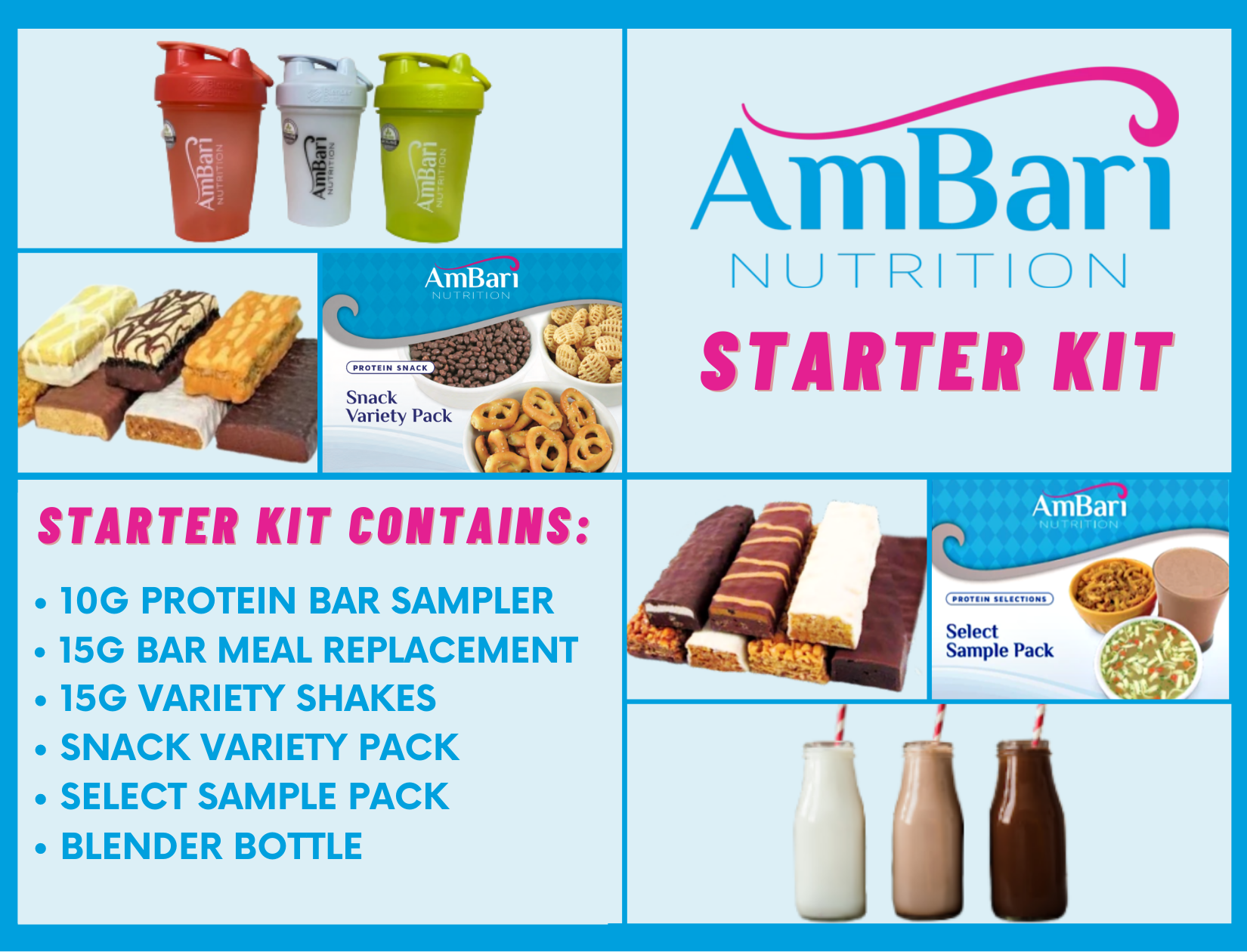Menu
Your cart is empty
Looks like you haven't added anything to your cart yet

The Best Diet Plan to Follow Using GLP-1's: Optimizing Your with GLP-1 Medications
The Best GLP-1 Diet Plan for Weight Loss
When using GLP-1 medications like semaglutide (Wegovy, Ozempic, etc..), following an appropriate diet plan is so important for both for safety and to support the weight loss effects of the drugs. Though these GLP-1 receptor agonists powerfully suppress appetite, restricting calories too severely risks:
- Nutritional deficiencies
- Loss of muscle mass
Therefore, the focus should be on a balanced, nutrient-dense diet that provides adequate nutrition within the reduced calorie intake. This type of eating pattern aligns with the appetite-reducing effects of GLP-1 drugs. It provides key nutrients to preserve health while continuing to benefit from these medications’ immense potential for weight loss and type 2 diabetes management under medical supervision.
Some key diet strategies include:
- Choose foods that promote feelings of fullness and control blood glucose spikes, including high fiber fruits, vegetables, whole grains, beans, lentils, and lean proteins
- Include healthy fats from sources like nuts, seeds, fish, and olive oil to help manage hunger
- Limit highly processed items which are often high in calories yet low in nutrients
- Stay hydrated by drinking fluids regularly
Talk with your prescribing doctor to help create a personalized GLP-1 diet tailored to your needs and preferences.
Sample GLP-1 Meal Plan
When taking GLP-1 medications, following a balanced meal plan is key for managing appetite changes while still meeting nutritional needs. The sample daily meal plans below demonstrate how to incorporate high protein foods, smart carbohydrate choices, healthy fats, and meal replacements into a GLP-1 diet.
A registered dietitian can help personalize a GLP-1 meal plan, but these examples offer a realistic template for combating side effects of appetite suppression while supporting weight loss goals.
Here is a sample 1-day GLP-1 meal plan:
| Meal | Foods |
|---|---|
| Breakfast | - Greek yogurt with berries - Hard boiled egg - 1 slice whole grain toast |
| Morning Snack | - Protein shake |
| Lunch | - Tuna salad wrap (tuna, greens, tomato, avocado in whole grain wrap) - Veggie sticks with hummus |
| Afternoon Snack | - Cottage cheese with almonds |
| Dinner | - Grilled salmon - Brown rice - Steamed broccoli |
| Evening Snack | - Turkey jerky stick - Small apple |
- This meal plan focuses on incorporating high protein foods like Greek yogurt, eggs, tuna, salmon, and turkey.
- It also includes high fiber carbohydrate sources such as whole grain breads, brown rice, vegetables, and fruits.
- Healthy fats from foods like avocado, nuts, seeds, and olive oil help balance meals.
- Meal replacements like protein shakes provide balanced nutrition between meals. It limits highly processed items and added sugars.

Here is another sample 1-day GLP-1 meal plan:
| Meal | Foods |
|---|---|
| Breakfast | - 1 egg + 3 egg whites, scrambled - 1⁄2 cup oatmeal topped with 1⁄4 cup blueberries and 1 Tbsp chopped walnuts - 1 cup unsweetened almond milk |
| Morning Snack | - 1 scoop protein powder mixed with water + 1 Tbsp almond butter |
| Lunch | - 4 oz grilled chicken breast - 1 cup roasted Brussels sprouts - 1⁄2 cup cooked quinoa |
| Afternoon Snack | - 6 oz nonfat Greek yogurt with 1⁄4 cup raspberries |
| Dinner | - Tofu veggie stir fry with brown rice - 1 cup edamame on the side |
| Evening Snack | - 1 oz mozzarella cheese stick + 1 small apple |
This meal plan also focuses on high protein foods like eggs, chicken, Greek yogurt, protein powder, edamame, and cheese. It incorporates high fiber carbohydrates like oatmeal, quinoa, Brussels sprouts, berries, and apples. Healthy fats from nuts, seeds, avocados, and olive oil help balance meals.
See Also:
Incorporating AmBari Nutrition into a GLP-1 Diet
AmBari Nutrition offers a range of products well-suited for supporting a nutritious GLP-1 diet plan. These products include:
High Protein Shakes and Bars: AmBari Nutrition has both meal replacement shakes and protein bars designed specifically to meet the higher protein needs of Bariatric and Diabetic diets, which is the same diet plan as someone using GLP-1 medications. These protein shakes and protein bars make it simple to increase daily protein intake, which helps preserve lean body mass when appetite is reduced.
Pre-Portioned Meals: For those struggling to finish normal sized meals, AmBari Nutrition provides portion-controlled foods that still deliver balanced nutrition. When pre-portioning your meals, you'll have a better grasp of your calories and protein intake without having to try calculating based on how much you put on your plate.
Supplements: AmBari Nutrition has a line of vitamins, capsules, and powders to help fill potential nutrient gaps. Key supplements include multivitamins, calcium, vitamin D, omega-3 fatty acids, probiotics, and other over-the-counter weight loss products.
AmBari Nutrition's products can help meet protein needs to preserve muscle mass, provide important vitamins/minerals that may be lacking due to poor intake, and offer portion controlled options to complement GLP-1 induced appetite suppression.
Writer: Allison Allison is a seasoned nutritionist and writer with over 15 years in health and weight management. She's authored journals on medical weight loss and bariatric medicine, and has specialized in bariatric foods. |
Reviewed By: Dr. K. Huffman Dr. Kevin D. Huffman, D.O., is a board-certified bariatric physician renowned for his expertise in treating obesity. With over 10,000 patients and a reputation as a national leader in bariatric medicine, he has trained hundreds of healthcare providers. Dr. Huffman develops protocols and training materials sought after by medical societies, pharmaceutical companies, patients, and hospitals. |
- Choosing a selection results in a full page refresh.



































